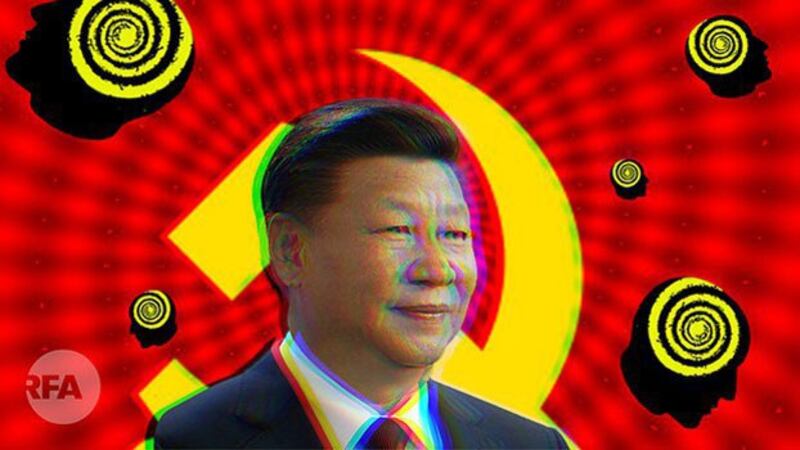The ruling Chinese Communist Party (CCP) is tightening its ideological grip on higher education in the country, ordering structural changes that will allow a far greater degree of party control in the day-to-day running of colleges and universities.
Institutions are now required to ensure that their in-house party committee "exercises comprehensive leadership" over their teaching, scientific research and administration, according to a revised set of rules issued on April 22.
"All major issues should be collectively discussed and decided by the party committee," the "Regulations on the Work of CCP Grassroots Organizations in Colleges and Universities" said.
Party branches should also be set up to guide the work of teachers, researchers on specific projects, undergraduate students and other sub-groups within a university, it said, choosing members with "a strong party spirit."
Their job is to carry out propaganda work and implement the central party line, as decided by Beijing, it said.
They are also charged with "resolutely preventing and resist all kinds of illegal missionary and infiltration activities," it said, in an apparent reference to religious organizations and political dissent.
Full-time CCP staffers should number not less than one percent of the total faculty and student body, with at least one teacher of political ideology per 350 students, it said.

Xi Jinping's personal brand of ideology
The new rules mean that many more people will be hired just to deliver political education in CCP leader Xi Jinping's personal brand of ideology, dubbed "socialism with Chinese characteristics in the new era," according to Carl Minzner, professor of Chinese law and politics at Fordham Law School.
"That’s Beijing – in small but significant ways – steadily increasing proportions of people on university budgets committed to political ideology, rather than academics," Minzner commented via his Twitter account after the new rules were published.
He said the move comes hand-in-hand with a growing number of ideological research centers embedded in Chinese universities dedicated to the study of Xi Jinping Thought.
"This is Beijing telling the schools (and all of academia) 'don’t think you’re special'," he wrote, citing a string of firings of outspoken Chinese academics in recent years.
Chen Kuide, executive chairman of the Princeton China Institute in the United States, said the CCP is keen to expand ideological education in all areas of life ahead of the centenary of the CCP's founding on July 1.
"It looks as if they will be putting a huge amount of further effort into this [under Xi Jinping]," Chen said. "It will definitely work for a while."
He said the move appeared to be in preparation for a change in diplomatic policy in recent years.
"Internationally, they are preparing for the next phase of competition [on the world stage]," he said.
'Patriotic dedication'
In December 2019, students at Shanghai's Fudan University staged a rare protest after the school joined other top institutions in removing references to "freedom of thought" from their charters.
The revised charters now refer to "patriotic dedication," and state that party committee is "the core of the university," and will be responsible for setting its direction and making decisions.
Since taking power in 2012, Xi has launched an unprecedented set of ideological controls and boosted the institutions needed to enforce them.
Xi has repeatedly warned members of the political class not to go off message in public, and set up a nationwide monitoring agency to supervise and detain anyone remotely connected with the government, including civil servants, teachers and academics, journalists, and contractors.
The authorities are stepping up monitoring of staff and students at the country's higher education institutions through the use of personal data, surveillance cameras in classrooms, as well as via student informants. who are the ruling Chinese Communist Party's eyes and ears on the ground.
Student informants are continually being recruited at China's universities and typically report back to the authorities around once every two weeks, according to online documents.
Xi's approach stems from a 2013 article titled "Improving Ideological and Political Work Among Young Teachers in Colleges and Universities," and from his reiteration of the "Seven Taboos" that mustn't be discussed in public by servants of the state, including teachers.
The seven banned topics are: universal values of human rights and democratic, constitutional government; press freedom; civil society; citizens' rights; the historical mistakes of the Chinese Communist Party; the financial and political elite; and judicial independence.
Reported by Mia Ping-chieh Chen for RFA's Mandarin Service. Translated and edited by Luisetta Mudie.
